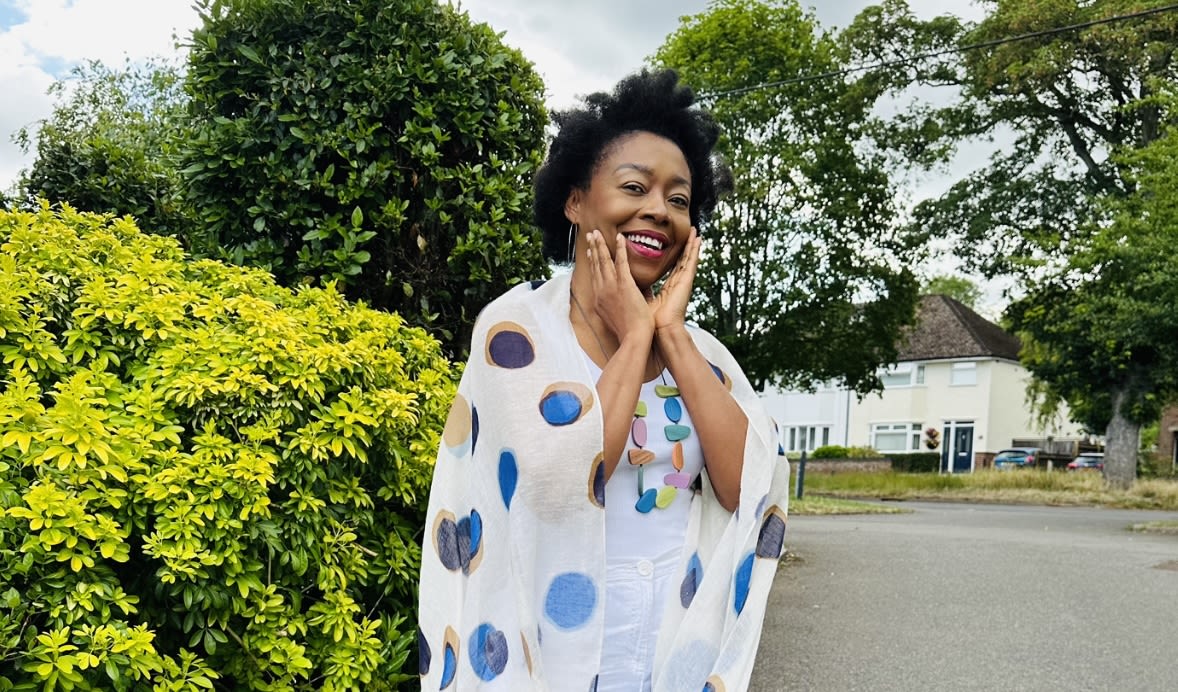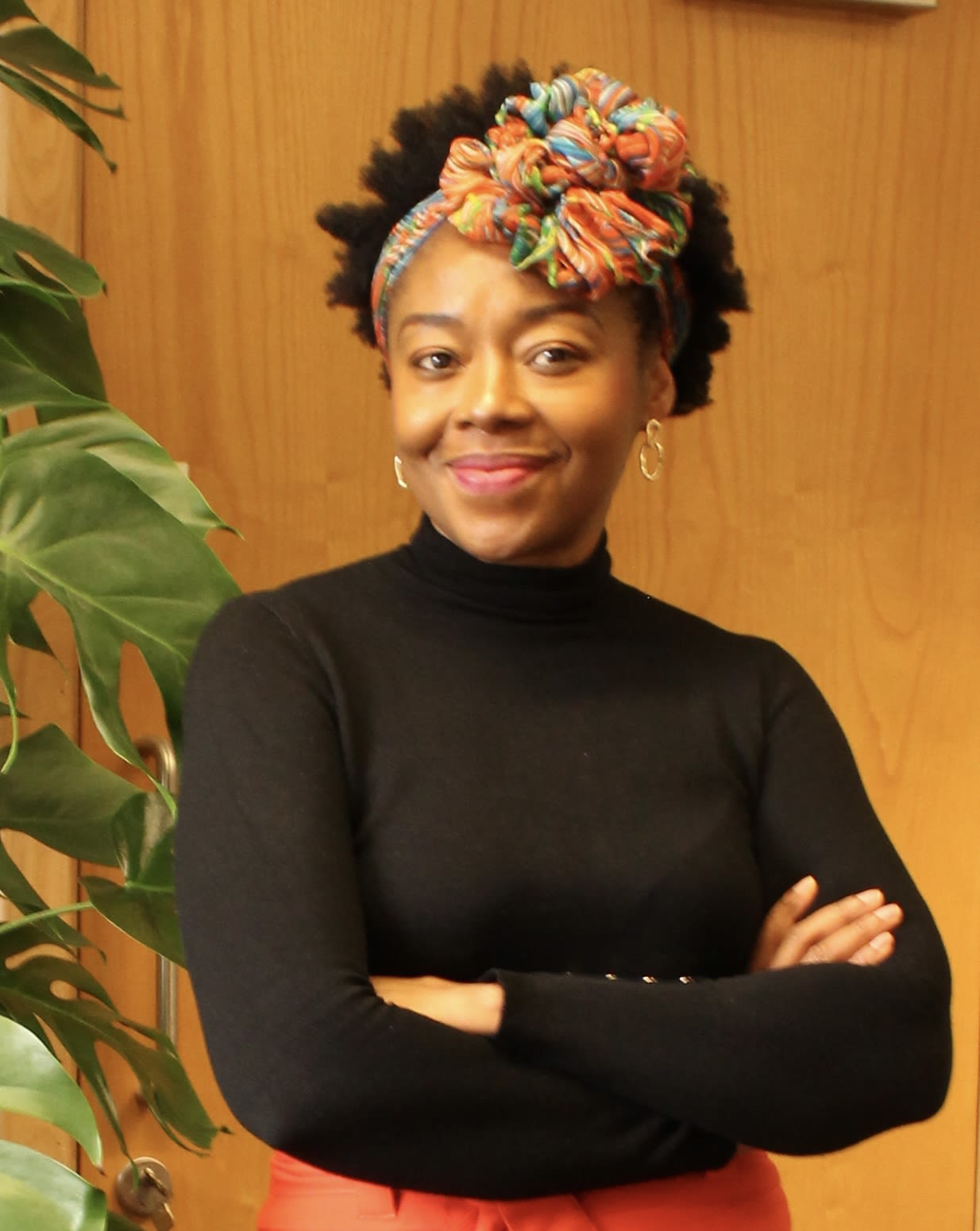Isang Awah
After taking on a PhD as a mother of four, alumna Isang Awah is putting her research into practice to support parents globally

When Dr Isang Awah began her PhD in Education in 2015, she was a mother of four with an excitingly eclectic CV.
Her academic credentials included a Bachelor’s degree in Biochemistry and a Master’s in Literature and Creative Writing, while her professional experience included stints as a scriptwriter, film producer and entrepreneur, as well as over ten years as a stay-at-home parent. But it was the creation of a company crafting personalised books reflecting African children’s lives and culture which proved the springboard to a new passion and focus.
“Shortly after my Master’s degree, I founded MyRainbowBooks Limited, an educational publications company which is committed to engendering a reading culture in Nigeria through the publication of well-written personalised storybooks that are tailored for African children,” Isang explains. “As a way of giving back and encouraging children to read and engage in creative writing, I initiated an annual free-to-enter national creative writing competition for children in Nigeria, organised by MyRainbowBooks in partnership with the E-Gaps Foundation. I mention the competition because it helped me to identify a research gap in an area that I was, and still am, passionate about, which is getting children and young people to do more leisure reading.”
The competition demonstrated what Isang perceived as a shortfall in the reading and writing abilities of the participants. Having already contemplated taking on the challenge of doctoral studies, this realisation sharpened her focus.
“My involvement in the writing competition fuelled my motivation and guided me on what area to research. You see, the volume of entries we received, and the ingenuity in many of the short stories and poems were exciting. However, the quality of writing in many of the entries was below standard, and this got me thinking about what could be done to improve the literacy skills of Nigerian children.”
Isang channelled this concern into research on reading for pleasure, working with a group of children aged between nine and twelve years old, and examining the extent to which they read as a leisure activity, and the factors that affected their reading engagement.
“My study throws up thought-provoking insights that could help parents and educators gain better knowledge of how some young children of primary school age in Nigeria read, as well as the key factors that influence their reading motivations and engagement. In addition, it offers parents, educators and policy-makers evidence-based recommendations on ways that children may be helped to enjoy leisure reading so that they voluntarily choose to read again and again.”
With no preconceptions about the Cambridge collegiate system, Isang stumbled across the Darwin website having taken the practical approach of searching for a College which met her needs: exclusively postgraduate and offering family accommodation.
‘I loved the things I read on the website, and the beautiful images of the College, all of which made Darwin appear welcoming. So, when asked my College preference in my application, I chose Darwin. I had a truly lovely experience and have fond memories of my time there, from eating in College with my husband and children, to teaming up with two friends to run the Afro-Asian stall at the Darwin Food Festival.”
On completing her doctorate, Isang joined The Accelerate Hub, an interdisciplinary research hub at the University of Oxford’s Department of Social Policy and Intervention that works with adolescents, policymakers, and NGOs to make cost-effective interventions that can improve the lives of children and adolescents in resource-limited settings. Subsequently, she took on a role which neatly combines her research and personal passions, as Head of Advocacy at the Global Parenting Initiative (GPI), run by the same department.
“I work with national governments, UN agencies and the NGO and FBO sectors to support the uptake of evidence-based playful parenting programmes, and also empower and support the GPI national research teams to lead on advocacy for the uptake of the Parenting for Lifelong Health programmes. My role nicely intersects with my academic interests because I am interested in social issues and literacy, and I am committed to improving outcomes for children and young people, especially in the Global South.”
Her own decade focused on raising her children, and her continuing involvement in their lives, combines with her professional expertise to make her a perfect fit for the role.
“Parenting plays such a crucial role in addressing social issues, and positive parenting practices, including nurturing a supportive and loving environment, can prevent negative outcomes such as delinquency, school dropout, substance abuse, and antisocial behaviour etc, and thereby contribute to a healthier society. It is quite fulfilling to do work that I genuinely care about, work that contributes to improving outcomes for children and families. And I feel lucky that I get to work with really lovely colleagues who are just as passionate as I am about the work that we do.”

Isang Awah
Isang Awah

